You may also be interested in

Evaluating Public Diplomacy Programmes
The new operational environment generated by the mass media revolution and the advent of the global information society lays the ground for a generalized re-emergence of public diplomacy (PD). After having been dismantled during the 1990s, this branch of foreign policy is undergoing a redevelopment phase within the chancelleries of many states around the globe. The growing salience of public opinion and the exponential development of the new information and communication technologies predispose this diplomacy of persuasion to play an increasing role at the forefront of twenty-first century int...

What Can Public Diplomacy Achieve?
The power of public diplomacy lies in its ability to shape perceptions, build relationships, and influence policy. This approach can enhance a country's reputation, foster understanding between different cultures, and promote cooperation on important global issues. Through strategic communication, engagement with foreign populations, and cultural exchanges, public diplomacy can achieve diplomatic goals and advance national interests in the international arena.
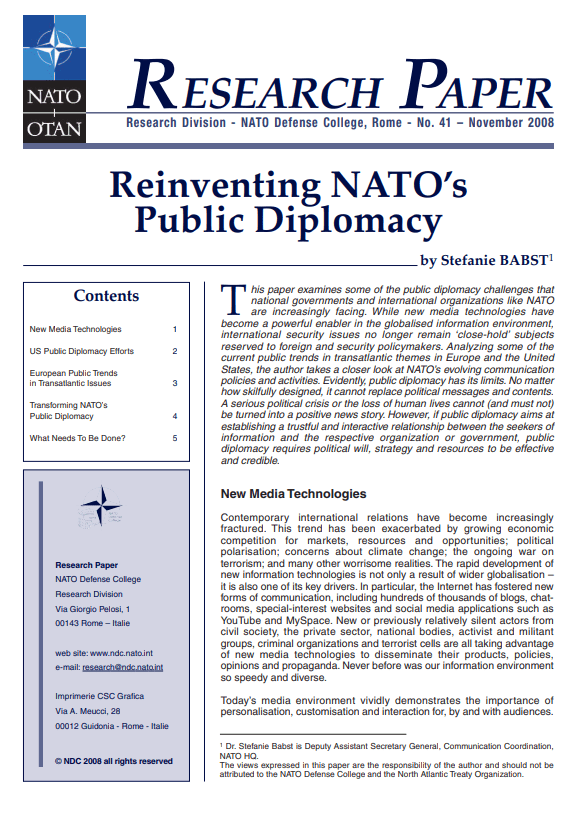
Reinventing NATO’s Public Diplomacy
In "Reinventing NATO's Public Diplomacy," the focus is on adapting NATO's communication strategies to engage with diverse audiences effectively. This entails addressing challenges such as information overload and the spread of disinformation, emphasizing the importance of credibility, transparency, and innovation in public diplomacy efforts. The article highlights the necessity for NATO to evolve its approach to public diplomacy to remain relevant in today's rapidly changing information landscape.
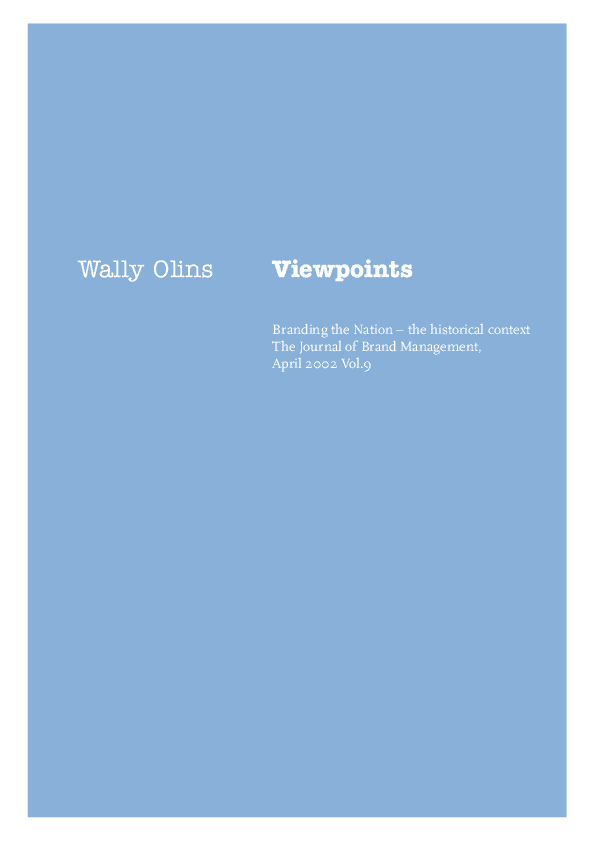
Branding the Nation – The historical context
The text discusses the importance of branding a nation within a historical context. It emphasizes how branding has been used throughout history to shape national identities and perceptions, highlighting examples such as coat of arms, flags, and national symbols. The message underlines the significance of branding in establishing a strong national image and fostering unity among citizens.
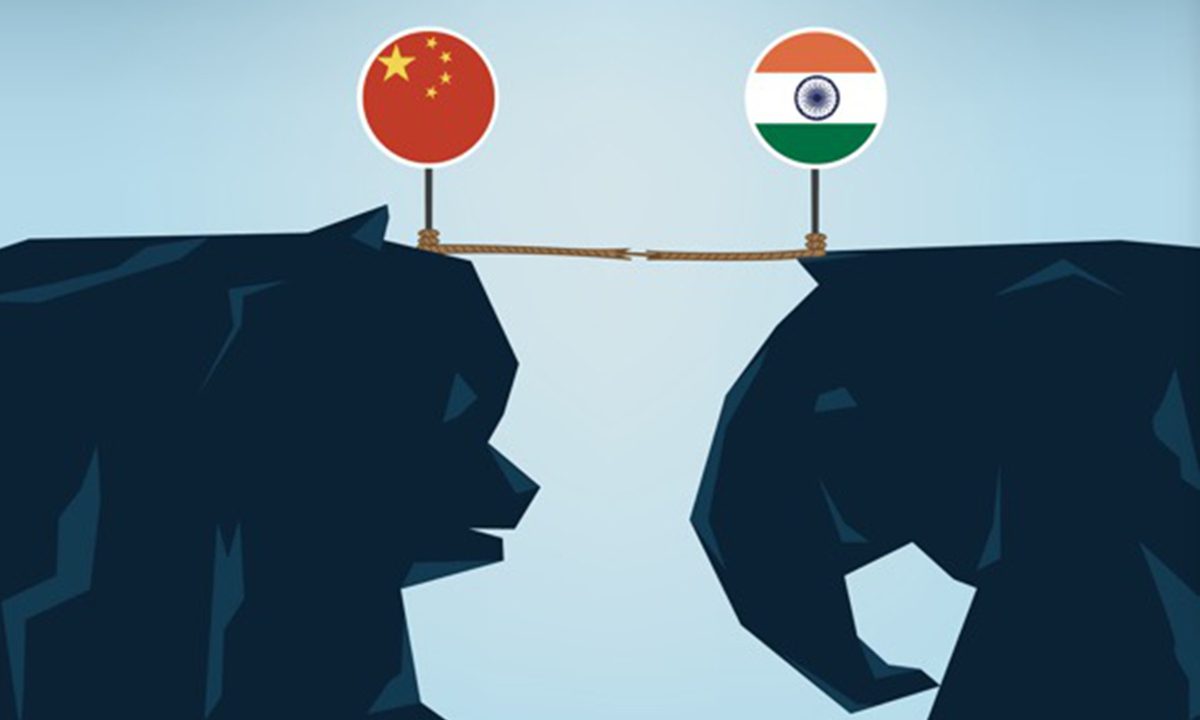
Resetting India’s public diplomacy
The text explores the concept of resetting India's public diplomacy, offering insights and recommendations for enhancing India's global engagement and soft power projection in the contemporary geopolitical landscape.

Public diplomacy and the rise of Chinese soft power
The article discusses the concept of public diplomacy and the growth of Chinese soft power on the global stage.

The Positive Branding of Islam: A Case Study of Islamic Countries, their Public Diplomacy Efforts and Effectiveness
Abstract: This thesis examines if any attempts are made by the Muslim world to address the current negative image of Islam using public diplomacy (PD) and if these efforts are effective and successful. It is the aim of this research to show that the correct use of PD can result in a positive improvement of the image of Islam.

Dialogue-based Public Diplomacy: A New Foreign Policy Paradigm?
The text explores dialogue-based public diplomacy as a potential new foreign policy paradigm, analyzing its effectiveness and implications for diplomatic practice in contemporary international relations.
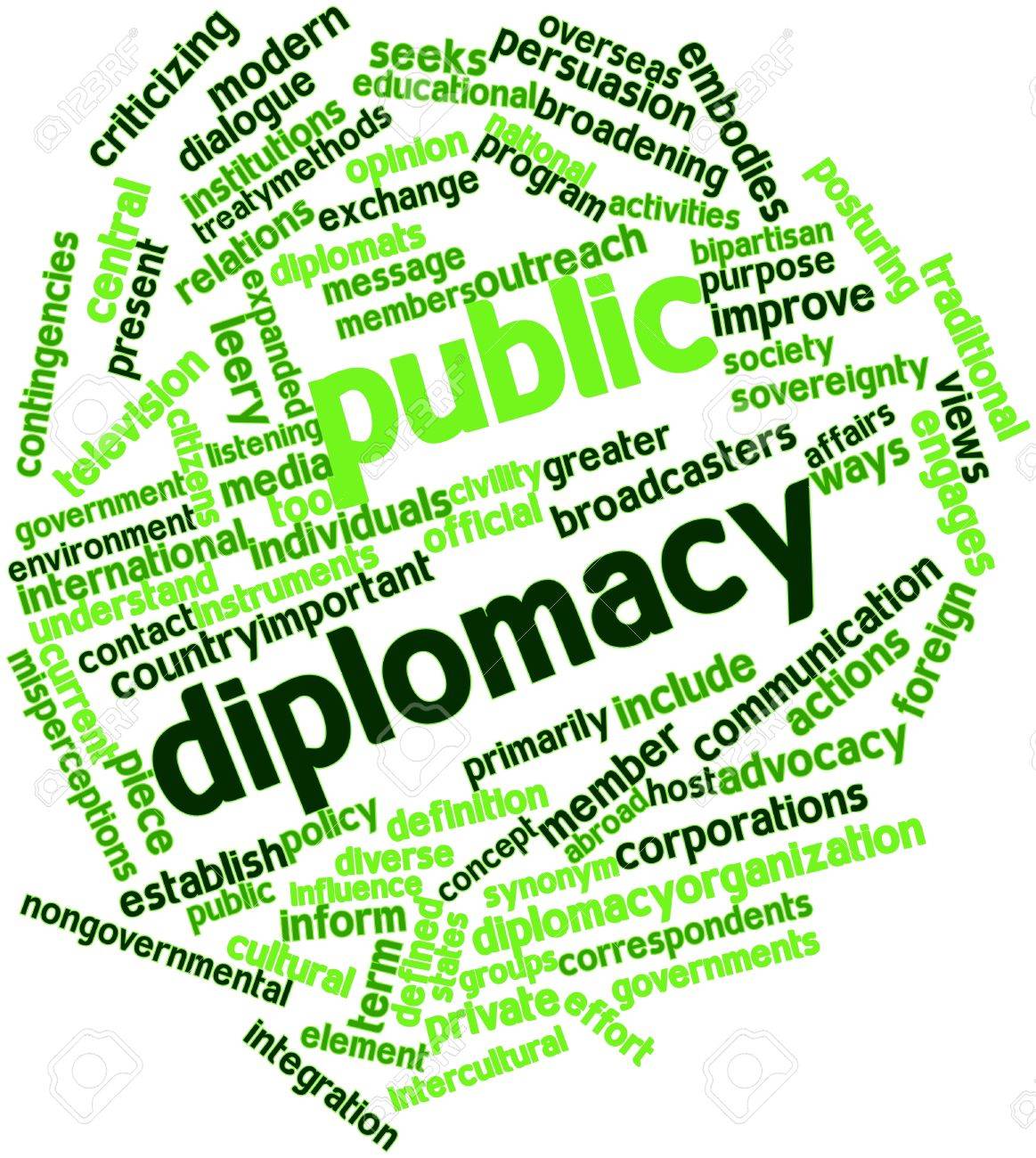
Public diplomacy: Taxonomies and histories
The text discusses public diplomacy, providing taxonomies and historical perspectives.
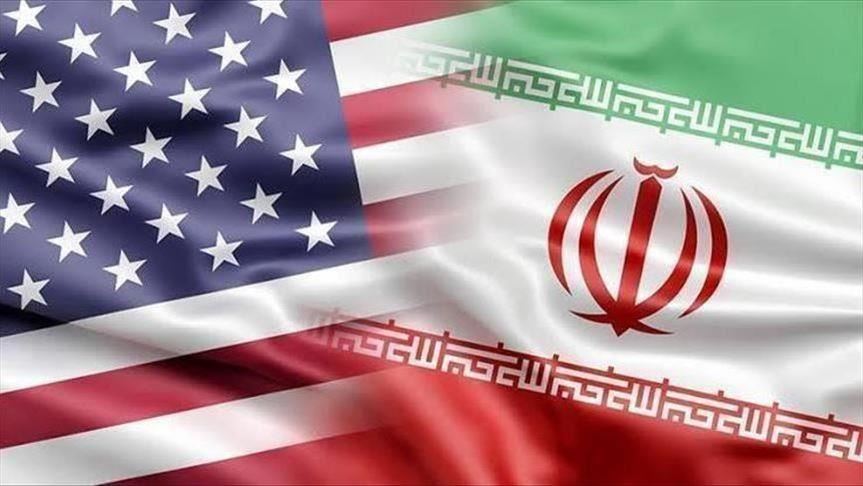
Public Diplomacy in the Middle East: A Comparative Analysis of the U.S. and Iran
The message provides a comparative analysis of public diplomacy strategies employed by the United States and Iran in the Middle East.
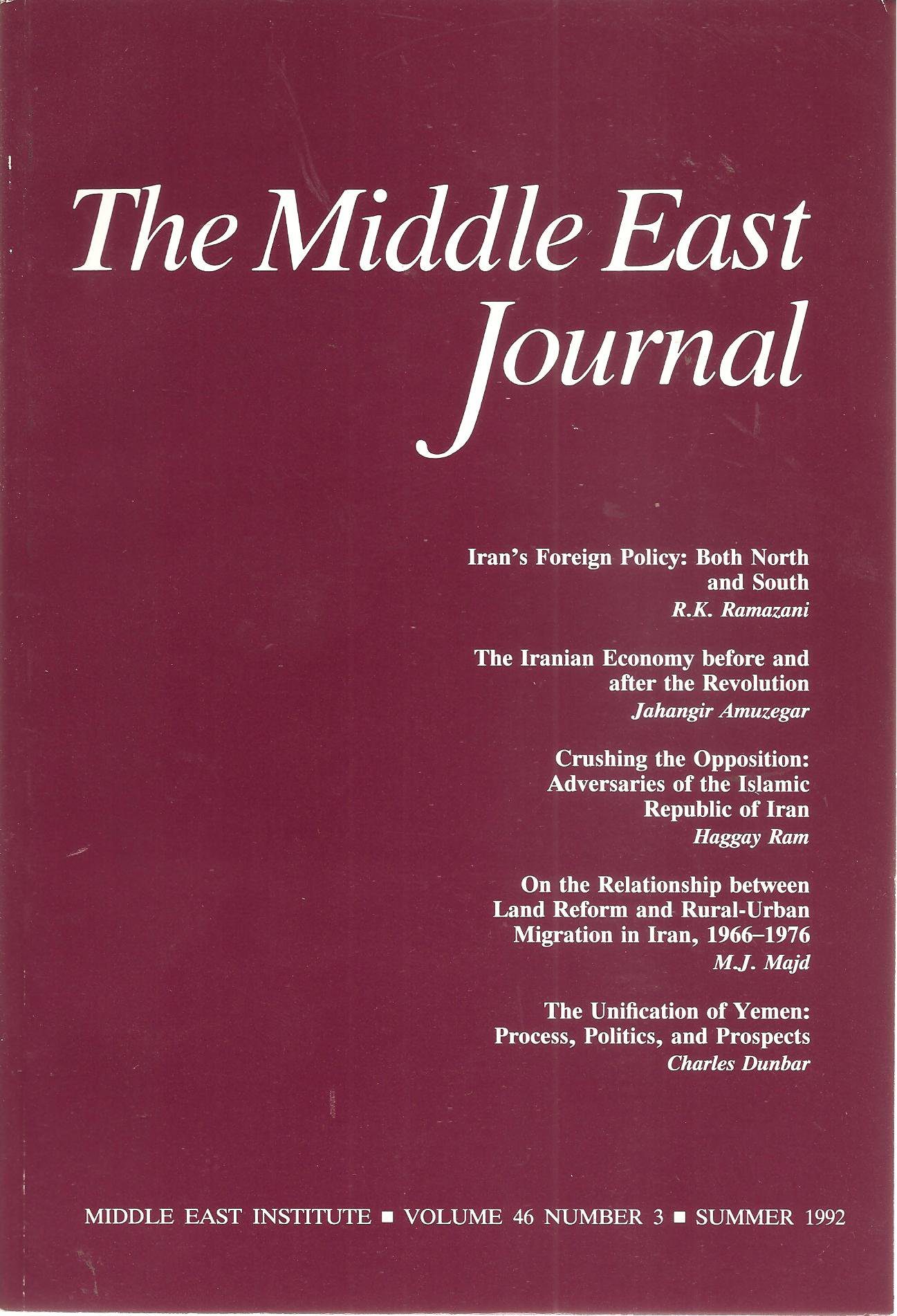
Qatar and the World: Branding for a Micro-State
There are two factors that have shaped Qatar’s integration and place in the international system. The first revolves around the constraints and problems of small states while the second is Qatar’s response — a strategy of branding the state for survival. This article discusses Qatar’s situation as a micro-state and analyzes the nature and success of its response.

Changing Minds, Winning Peace: A New Strategic Direction for US Public Diplomacy in the Arab and Muslim World
A reprint of the historic report of the Advisory Group on Public Diplomacy for the Arab and Muslim World, this document was submitted to the US Congress in 2003 as a first step toward reforming America's dilapidated strategic communication infrastructure. The bipartisan Advisory Group, chaired by Ambassador Edward P. Djerejian, made a series of recommendations in this report that helped re-shape US public diplomacy.
Activities of the Department of Public Information: Strategic communications services
The Department of Public Information provides strategic communications services.
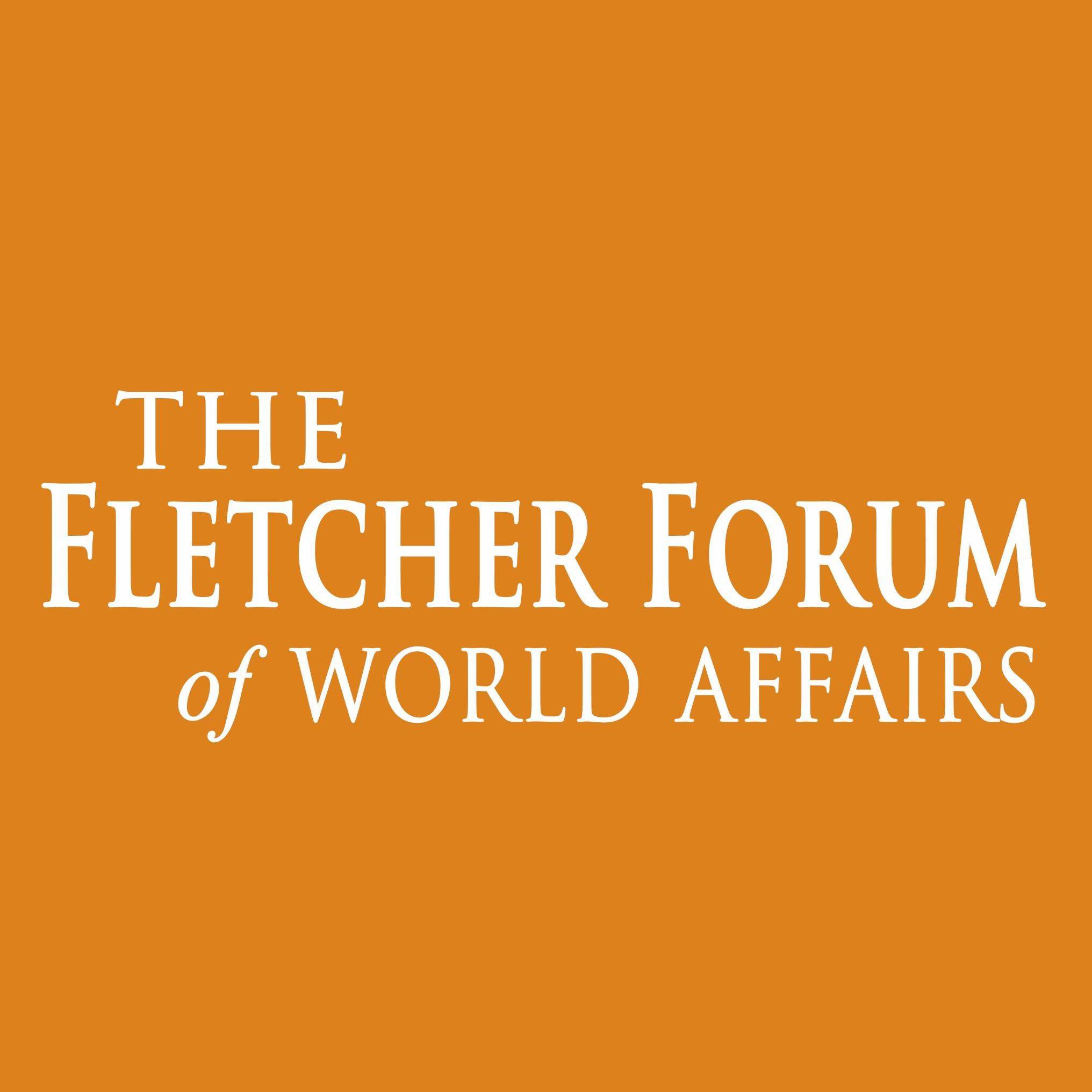
Public diplomacy at the crossroads: Definitions and challenges in an ‘Open Source’ era
The text discusses the current state of public diplomacy and its challenges in an era of open source information.
Public Diplomacy and Nation Branding: Conceptual Similarities and Differences
In the text "Public Diplomacy and Nation Branding: Conceptual Similarities and Differences," the authors explore how public diplomacy and nation branding share common goals of improving a country's reputation and influence globally. They highlight the distinctions between the two concepts, emphasizing public diplomacy's focus on building relationships through communication, while nation branding involves promoting a country's image and identity. The authors discuss how these practices can complement each other in shaping international perceptions of a nation.
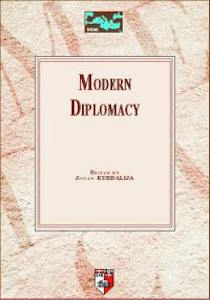
Public Diplomacy
This paper describes and discusses public diplomacy from the practitioner’s perspective.
The emergence of international public opinion and the origins of public diplomacy in Japan in the inter-war period
The emergence of international public opinion and the origins of public diplomacy in Japan in the inter-war period.
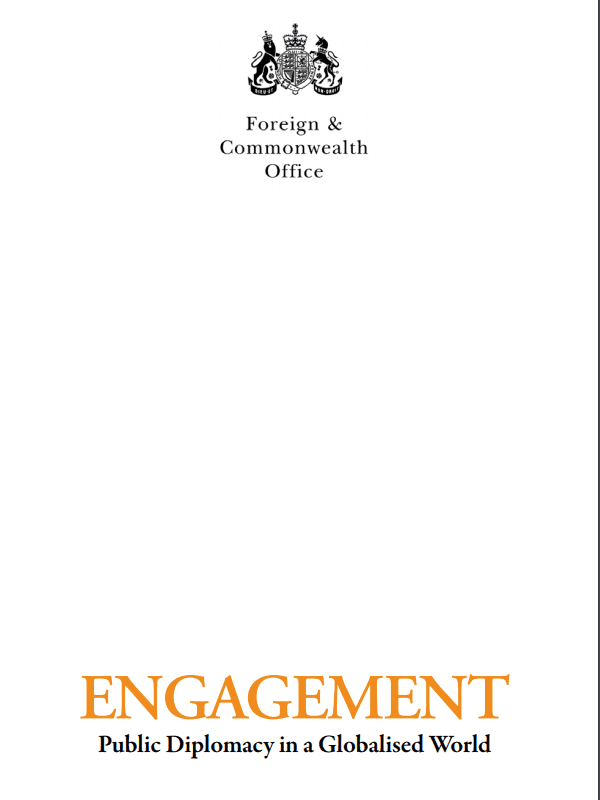
Engagement: Public Diplomacy in a Globalised World
We need a public diplomacy which fits our time. The policy issues which confront us are increasingly global. Systematic engagement with publics both at home and abroad will be required if we are to identify and implement solutions. Policy-makers and diplomats must work with a wider range of constituencies beyond government, moving towards a more open, inclusive style of policy-making and implementation. Understanding of complexity, difference, networks and cultural heritage will be needed, alongside more imaginative use of technology. Engagement, conducted with energy, ambition and cre...
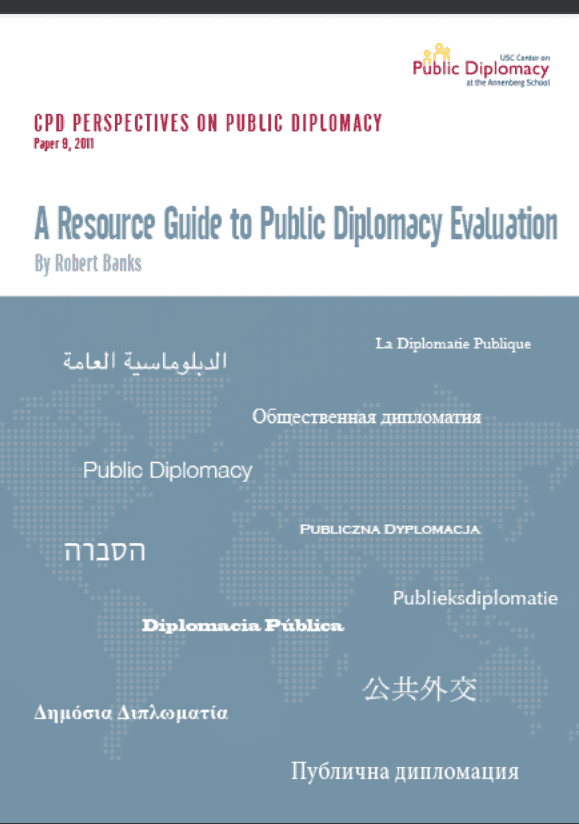
A Resource Guide to Public Diplomacy Evaluation
Ensure public diplomacy efforts are effectively evaluated to measure impact and inform future strategies. Use a mix of qualitative and quantitative methods tailored to specific goals and audiences. Consider factors like reach, engagement, perception change, and policy outcomes when assessing success. Collaboration with stakeholders and consistent monitoring are key to a successful evaluation process.
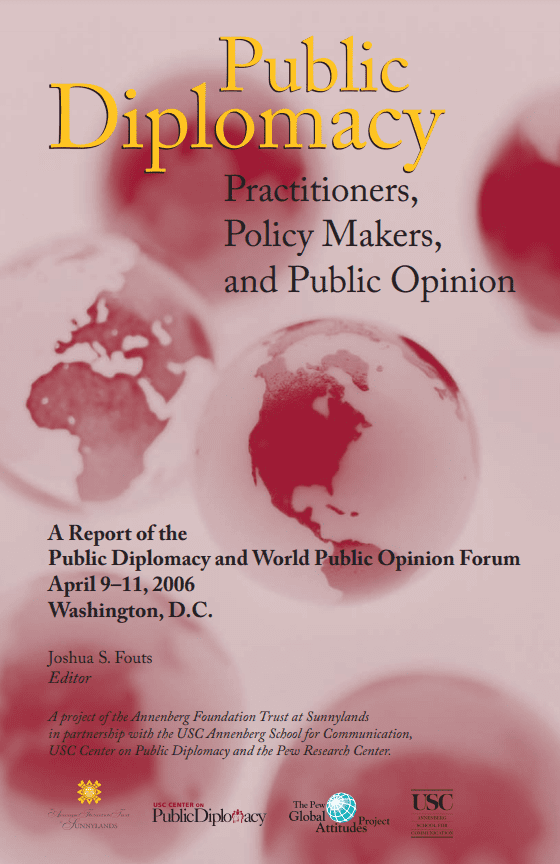
Public Diplomacy: Practitioners, Policy Makers, and Public Opinion
The article discusses the importance of public diplomacy for building relationships between countries. It emphasizes the role of practitioners, policy makers, and public opinion in shaping international perceptions and fostering mutual understanding. Public diplomacy is highlighted as a crucial tool in today's interconnected world for promoting diplomatic goals and enhancing global cooperation.
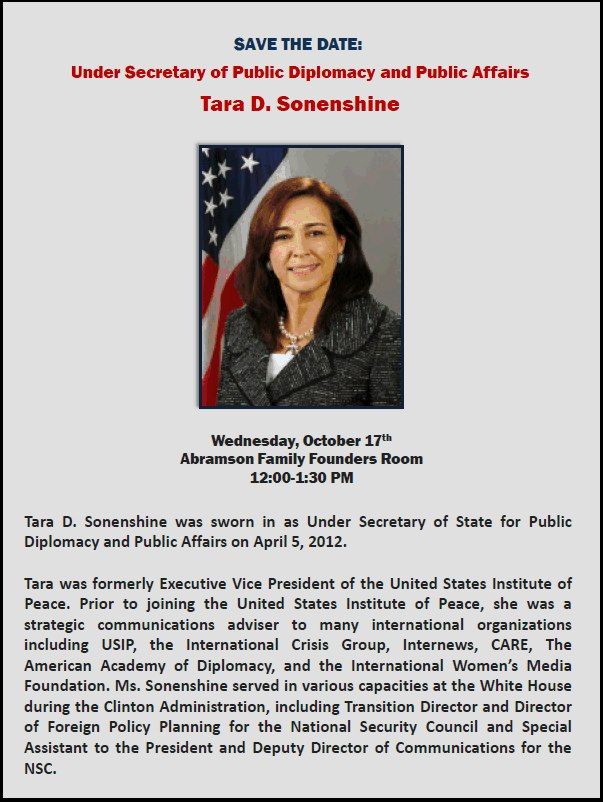
Bottom Line Diplomacy: Why Public Diplomacy Matters
Public diplomacy plays a crucial role in shaping a country's image and fostering international relations. By engaging with foreign audiences through cultural exchanges, educational programs, and social media, nations can build trust and promote their values on a global scale. In an interconnected world, public diplomacy is key to advancing national interests and fostering cooperation among nations.
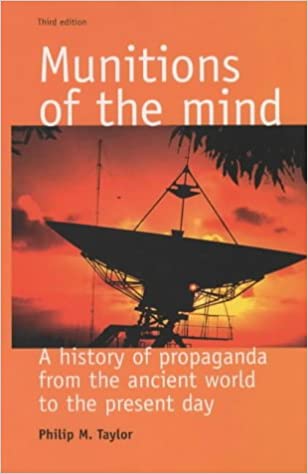
Munitions of the Mind: A history of propaganda from the ancient world to the present era
The text discusses how propaganda has been used throughout history, dating back to ancient times, up to the present era.
Metaphor and War: The Metaphor System Used to Justify War in the Gulf
The text discusses how metaphors are used to justify war in the Gulf.

Canada and the new public diplomacy
The text discusses Canada's approach to public diplomacy, emphasizing the country's commitment to engaging with international audiences through digital platforms, strategic communication, and cultural exchanges. Canada aims to promote its values and interests globally by leveraging soft power initiatives such as education, arts, and innovation. The country's public diplomacy efforts focus on building relationships, enhancing its reputation, and fostering dialogue with diverse communities around the world, reflecting a modern and inclusive approach to international relations.

International Diplomacy Volume IV: Public Diplomacy
The text explores the domain of public diplomacy within the broader context of international diplomacy, offering insights into the evolving strategies and practices of statecraft aimed at engaging and influencing foreign publics.
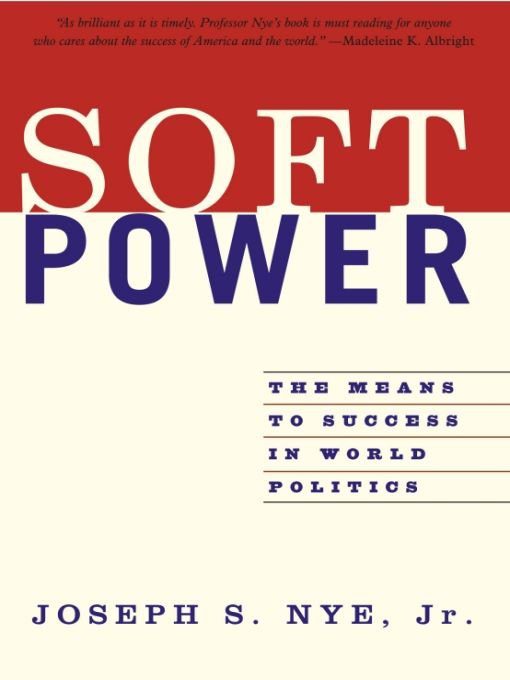
Soft Power by Joseph Nye
In his book, Nye reminds us that many countries have "soft power" to different extents. Their origins are different, but they work the same way as the "U.S.'s soft power."

Cyber-diplomacy: Managing Foreign Policy in the Twenty-first Century
Cyber-diplomacy: Managing Foreign Policy in the Twenty-first Century" discusses the importance of digital diplomacy in modern international relations. It explores how governments can leverage technology to engage with other countries, protect national interests, and navigate cyber threats effectively. This book offers insights into how cyber-diplomacy is reshaping traditional diplomatic practices and the key role it plays in shaping foreign policy in the digital age.

The role of the Beijing Olympics in China’s public diplomacy
The Beijing Olympics play a significant role in China's public diplomacy.

Britain TM: Renewing Our Identity
This message is about embracing Britain's identity and renewing it for the future. It discusses the importance of celebrating traditions, values, and cultural heritage while adapting to modern challenges and opportunities. The focus is on maintaining a sense of national pride and unity while moving forward towards a bright and successful future.
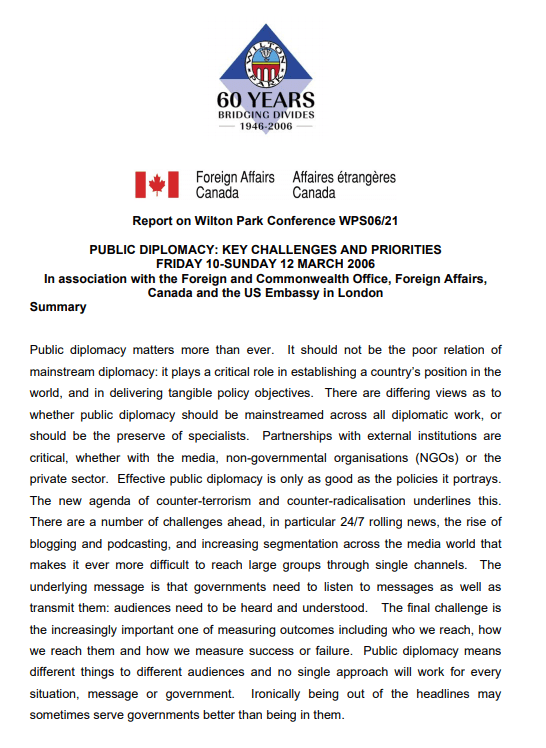
Public Diplomacy: Key Challenges and Priorities
The message focuses on discussing key challenges and priorities in public diplomacy. It aims to provide insights and strategies to navigate the complexities of public diplomacy effectively.
Brands and national image: An exploration of inverse country-of-origin effect
The study explores the relationship between perceptions about products produced in a country and the country's reputation and image. It considers country-of-origin effect (COO) from an inverse perspective; rather than looking at how national reputation affects perceptions of products, it measures how brand image affects country image. It used a method that blends survey and experimental design to test the effects of brand association on country image using 488 subjects. The results indicate support for an inverse COO: knowledge of the country of origin of a brand can enhance the image of the c...

Humanitarian public diplomacy: International calls to action in the digital era
This dissertation examines IOs (IOs) as emerging stars in the constellation of diplomatic actors, as extra-state and supra-state entities that do not replace, but rather complement, align with and encourage states. Specifically focusing on humanitarian - those attentive to the needs of people - international organisations, the paper explores their use of calls to action as a public diplomacy tool that both activates the public and reflects the needs and desires of individuals and their communities, translated to policy context. Calls to action should be strategic, well-researched, authoritive,...

Nation branding and the role of public diplomacy in assisting small island states in developing strong nation brands
The concept of applying branding principles and strategies to nation states has been around for decades. However, in recent years, the concept has occupied prime attention in academia and the business sector.
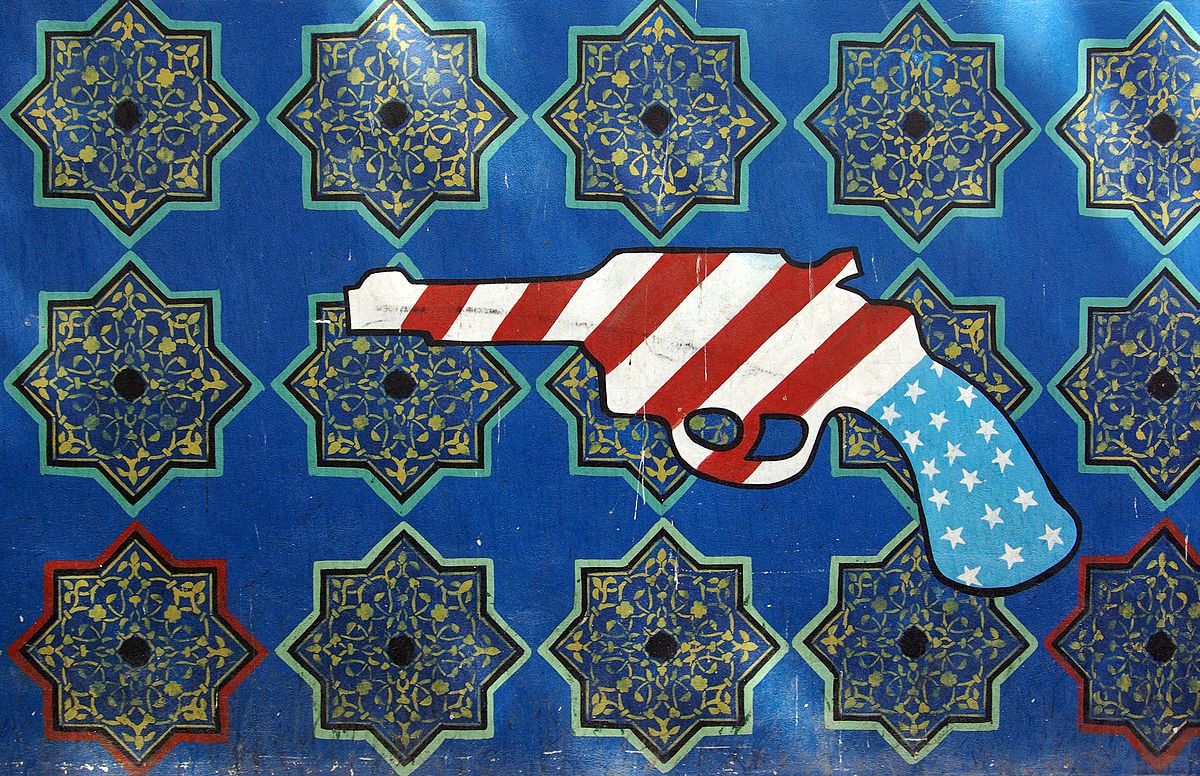
Iran’s Public Diplomacy in Latin America: When Anti-U.S. Rhetoric is Not Enough to Convince
The article discusses Iran's endeavors in Latin America to bolster its public image through public diplomacy efforts beyond anti-U.S. rhetoric, aiming to expand influence in the region.

Social Power in International Politics
In "Social Power in International Politics," the author explores the impact of social power in shaping international relations. Social power encompasses the ability to influence others' behaviors, beliefs, and attitudes through norms, values, and identities. This form of power is not solely possessed by states but also by non-state actors and international organizations. Understanding social power dynamics is crucial for comprehending the complexities of global politics and how ideas and identities shape international interactions and conflicts.
The inertia of Diplomacy
Diplomacy is used to manage the goals of foreign policy focusing on communication. New trends affect the institution of diplomacy in different ways. Diplomacy has received an additional tool in the form of the Internet. In various cases of interdependence and dependence interference in a country’s affairs is accepted. Multilateral cooperation has created parliamentary diplomacy and a new type of diplomat, the international civil servant. States and their diplomats are in demand to curb the excesses of globalization. The fight against terrorism also brought additional work for diplomac...

New Media Tools and Public Diplomacy
The article discusses the role of new media tools in public diplomacy, highlighting their importance in shaping international relations and influencing public opinion. It emphasizes the potential of social media platforms for engaging global audiences, fostering dialogue, and promoting a positive image of nations on the global stage. Additionally, the article explores the challenges and opportunities that arise from the digital age in the realm of public diplomacy.
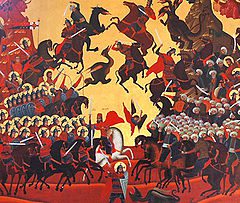
Kosovo and the Metaphor War
The text examines the Kosovo conflict through the lens of metaphorical discourse, analyzing how competing narratives shape perceptions and policy responses to the complex geopolitical dynamics of the region.

Public diplomacy and soft power
The text explores the concepts of public diplomacy and soft power, elucidating their significance in shaping international relations and promoting a country's influence through attraction rather than coercion.

US Public Diplomacy: A Cold War Success Story?
The post-'9/11' revival of interest in US public diplomacy encompasses a wide variety of opinions, all overwhelmingly critical.
The rhetoric of public diplomacy and propaganda wars: A view from self-presentation theory
Efforts by governments to affect foreign public opinion through direct communication – and in competition with rival governments – have been a stable and consistent feature of international diplomacy since the turn of the twentieth century.
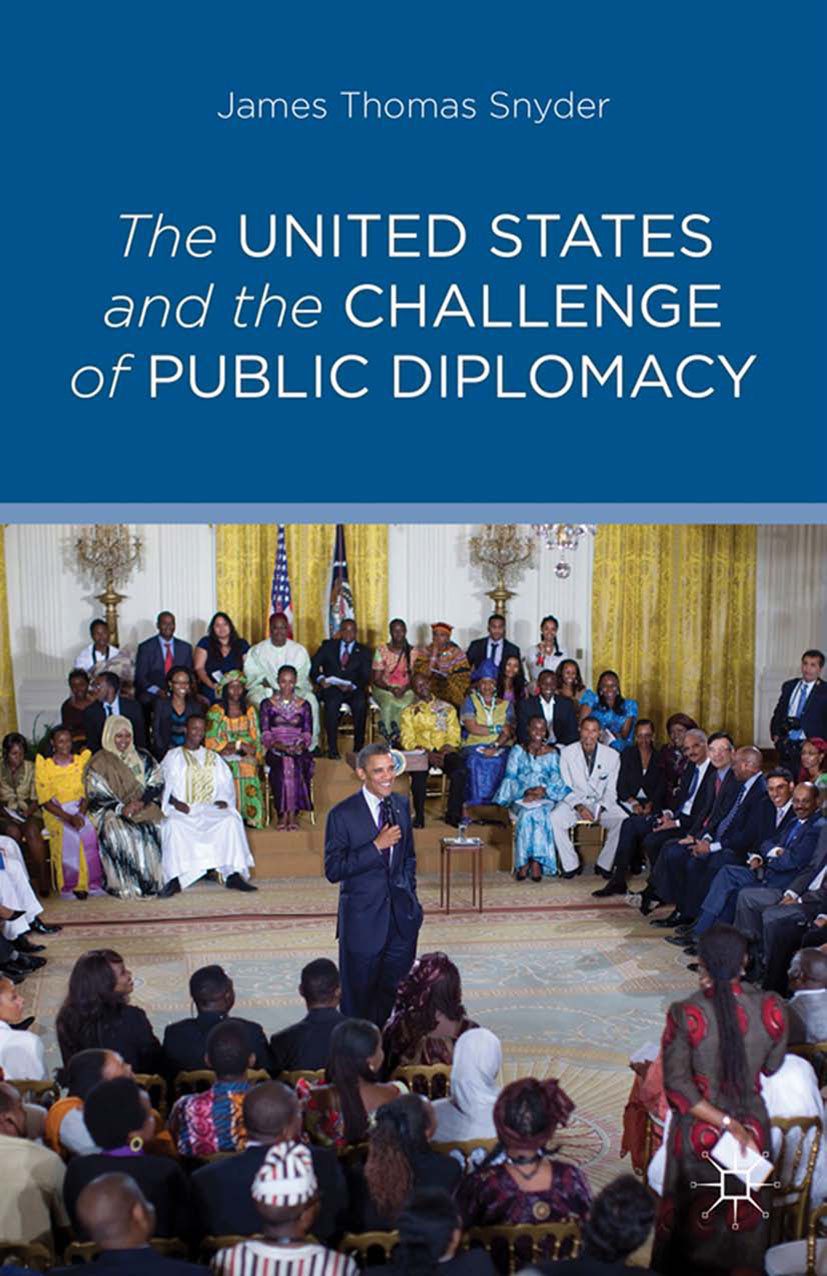
The United States and the Challenge of Public Diplomacy
The United States faces challenges in public diplomacy, influencing global perception, and understanding the perceptions of various audiences, necessitating a strategic and comprehensive approach to communication.

Twitter and Diplomacy: How Social Networking is Changing Foreign Policy
The article discusses the impact of social networking, particularly Twitter, on foreign policy and diplomacy, highlighting how governments and leaders are using these platforms to engage with each other and the public in real-time, influencing international relations. Diplomacy is evolving through social media, shaping public opinion and enabling direct communication between officials and citizens.
The Struggle for Soft Power in Asia: Public Diplomacy and Regional Competition
The article discusses the importance of soft power in Asia and the ongoing competition for influence through public diplomacy efforts.

Public diplomacy and nation brand
In a time where interaction with citizens is the key to diplomatic success, Morocco still lags behind other small states and does not yet pursue efficient strategies of public diplomacy and nation brand.
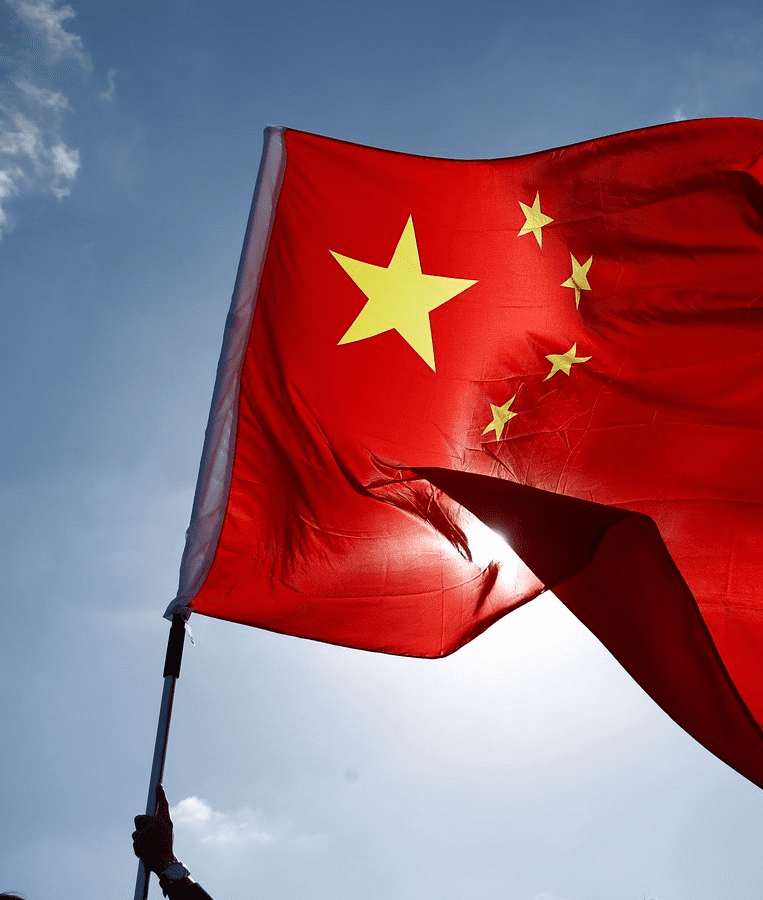
China’s Soft Power in the Information Age: Think Again
This essay provides a comprehensive analysis of the Chinese public diplomacy in the digital era.

Australia’s Public Diplomacy: Building Our Image
Australia is elevating its public diplomacy efforts to enhance its global image. The country's focus on strategic communication aims to promote its values, interests, and culture on the international stage, fostering positive relationships and understanding with other nations. Through various initiatives, including cultural exchanges and digital diplomacy, Australia seeks to build strong networks and increase its influence in the global community.
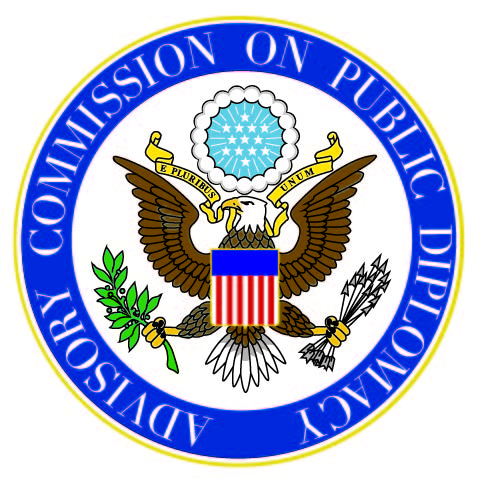
Data-driven Public Diplomacy: Progress Towards Measuring the Impact of Public Diplomacy and International Broadcasting Activities
The text discusses the progress made in measuring the impact of public diplomacy and international broadcasting activities.

The Role of the Beijing Olympics in China’s Public Diplomacy and its Impact on Politics, Economics and Environment
The 2008 Beijing Olympics were ardently sought, lavishly staged and hugely successful, despite intense scrutiny, speculation and setbacks. Amplified by modern media, most controversies revolved around China's political repression, epitomised by Tibet brutality. Resultant protests threatened boycott and terror, putting internal cohesion, national image and Olympic dream at stake.

China and Public Diplomacy: A CPD Reader
China and Public Diplomacy: A CPD Reader provides an overview of China’s approach to public diplomacy, an examination of China’s cultural diplomacy, its nation branding during the 2010 Shanghai Expo and media depictions of China. The blogs, articles, reports and essays featured in the eBook were originally published by CPD between October 2009 and August 2012.

Public diplomacy in Croatia: Sharing NATO and EU values with domestic publics
The importance of public diplomacy in Croatia is highlighted, emphasizing the role of sharing NATO and EU values with domestic audiences to foster understanding and support.

Connectivity and networks rule: Virtuality, public diplomacy and the foreign ministry
The text discusses the impact of connectivity and networks on public diplomacy and foreign ministries, emphasizing the importance of virtual communication in today's world.
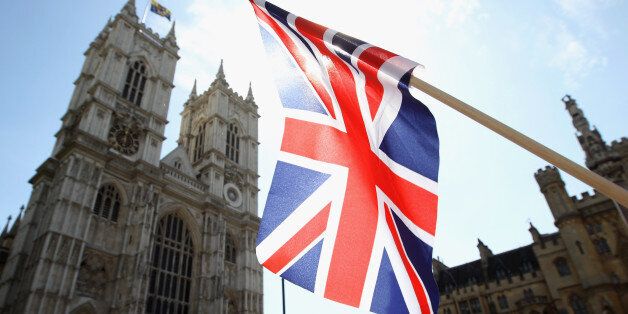
Public Diplomacy’s Branding Trap
In "Public Diplomacy's Branding Trap," the author warns against oversimplifying and relying too heavily on branding in public diplomacy efforts. They argue that focusing too much on branding can diminish the complexity and nuances of a country's image, potentially leading to misunderstandings and oversights in communication strategies. The author emphasizes the importance of authenticity, context, and relationships in successful public diplomacy initiatives.
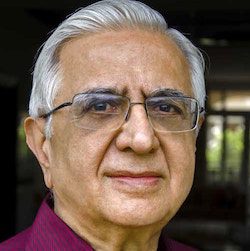
India’s diaspora diplomacy
India emphasizes the importance of its diaspora in expanding its global influence through diaspora diplomacy, focusing on enhancing connections with people of Indian origin worldwide.

European Infopolitik: Developing EU Public Diplomacy Strategy
The text discusses the strategic approach of European Infopolitik in developing a public diplomacy strategy for the EU.
Moving from monologue to dialogue to collaboration: The three layers of public diplomacy
The text discusses the three layers of public diplomacy: moving from monologue to dialogue to collaboration.
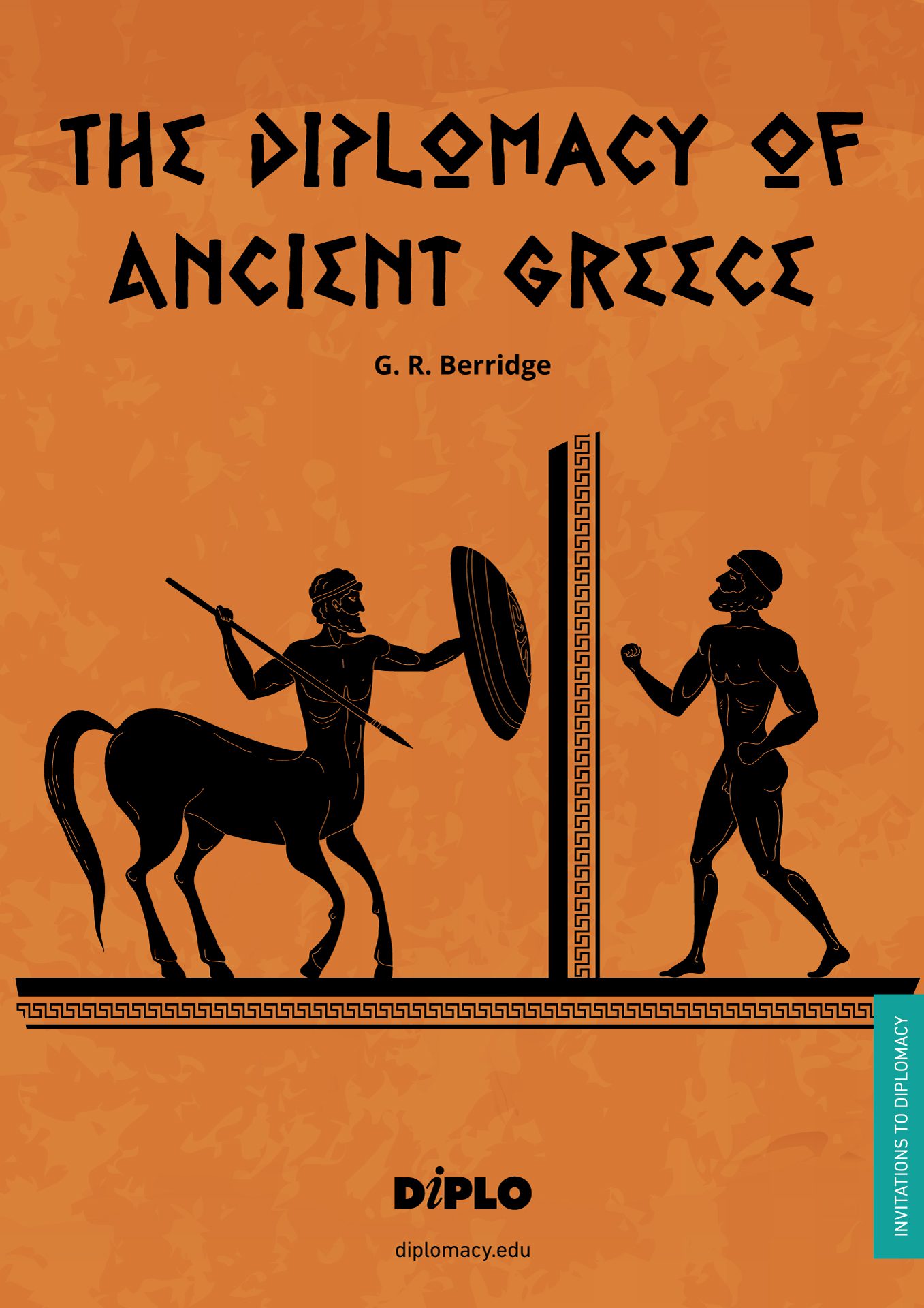
The Diplomacy of Ancient Greece – A Short Introduction
Employed against a warlike background, the diplomatic methods of the ancient Greeks are thought by some to have been useless but by others to have been the most advanced seen prior to modern times.

Public Diplomacy Between Home and Abroad: Norway and Canada
The text discusses public diplomacy efforts between Norway and Canada. Both countries recognize the importance of cultural exchange, education, and communication in fostering positive international relations. Various initiatives, such as academic partnerships and cultural events, are highlighted as examples of how these nations engage in public diplomacy to strengthen their ties and promote mutual understanding.

The transformation of consular affairs: The United States experience
The United States has undergone a significant evolution in consular affairs, largely due to technological advancements and changing global dynamics. This transformation has enabled consular services to become more efficient, accessible, and secure. Modernization efforts include the adoption of biometric data, online appointment systems, and streamlined application processes. As a result, the U.S. consular network is better equipped to serve the needs of citizens, promote national security, and facilitate international travel and trade.
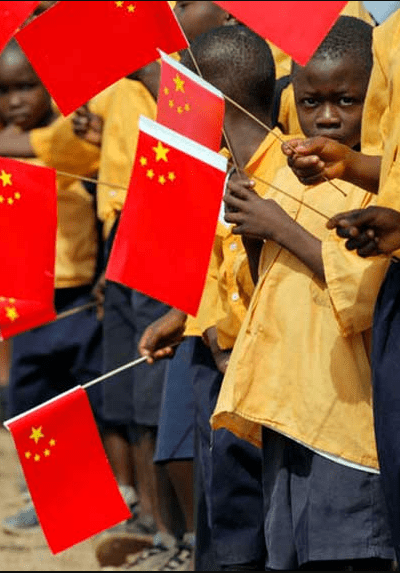
China’s soft power in Africa: From the ‘Beijing Consensus’ to health diplomacy
China has deepened its engagement with Africa since 1949, shifting from ideological to pragmatic approaches. This evolution includes aiding socialist nations with infrastructure projects, sending experts, and fostering economic and political ties. Present-day interactions involve Chinese officials, bankers, and businesspeople promoting sustainable economic growth. China's focus on raw materials has not overshadowed its support for aid programs like medical assistance. The relationship is set to progress through a mix of traditional aid, technical support, and increased trade and investment.
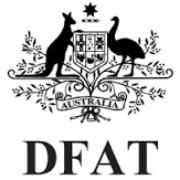
Public Diplomacy and Advocacy Handbook
The Public Diplomacy and Advocacy Handbook emphasizes the importance of building relationships with foreign audiences through strategic communication. It discusses the significance of understanding local cultures and public opinion to effectively promote a country's interests and values. The handbook provides guidance on creating impactful messaging, engaging with international stakeholders, and utilizing various communication tools to advance diplomatic objectives. Additionally, it highlights the role of advocacy in influencing policies and decision-making processes on a global scale.
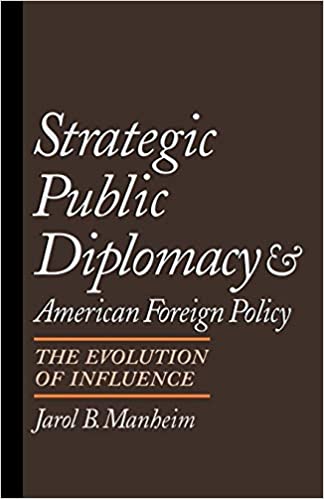
Strategic Public Diplomacy: The Evolution of Influence
Strategic Public Diplomacy: The Evolution of Influence" explores the development of public diplomacy strategies, focusing on their impact and evolution over time.

Public opinion in the Arab and Muslim world: Informing US public diplomacy
The text discusses the importance of understanding public opinion in the Arab and Muslim world to enhance US public diplomacy efforts.
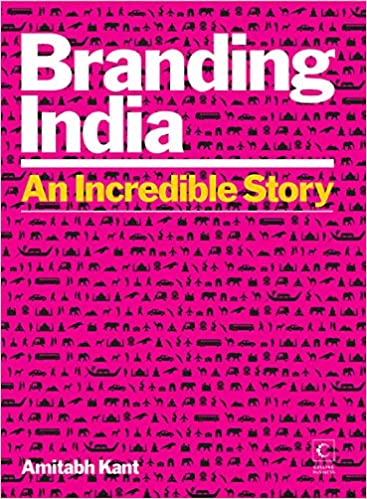
Branding India: An Incredible Story
Branding India: An Incredible Story" explores India's journey in establishing itself as a global leader through strategic branding initiatives. The book delves into how India has successfully leveraged its rich cultural heritage, diversity, and innovation to enhance its global presence and attract investments. It showcases the country's transformation from a land of snake charmers to a hub of technology and entrepreneurship, presenting a compelling narrative of India's branding evolution on the world stage.
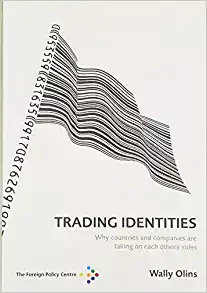
Trading Identities: Why Countries and Companies are Taking on Each Others’ Roles
The text discusses how countries and companies are increasingly adopting each other's roles in global trade.

The New Public Diplomacy: Soft Power in International Relations
"The New Public Diplomacy: Soft Power in International Relations" is a thought-provoking and insightful book that delves into the realm of public diplomacy and its significance in the context of modern international relations. Authored by Jan Melissen, a renowned scholar in the field, this book offers a comprehensive analysis of the evolving nature of diplomacy and the growing importance of soft power.
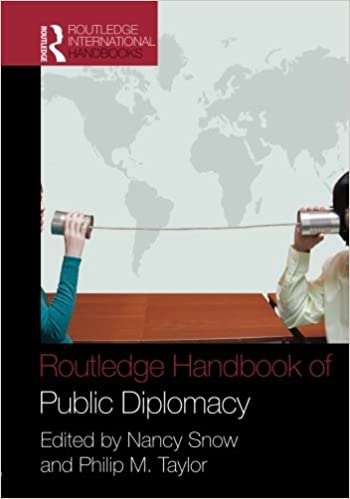
Routledge Handbook of Public Diplomacy
The Routledge Handbook of Public Diplomacy explores the field's evolution, challenges, and strategies in the modern interconnected world. It investigates the role of both state and non-state actors in shaping international relations through communication and cultural exchange, emphasizing the importance of building relationships and understanding diverse perspectives for effective public diplomacy efforts.
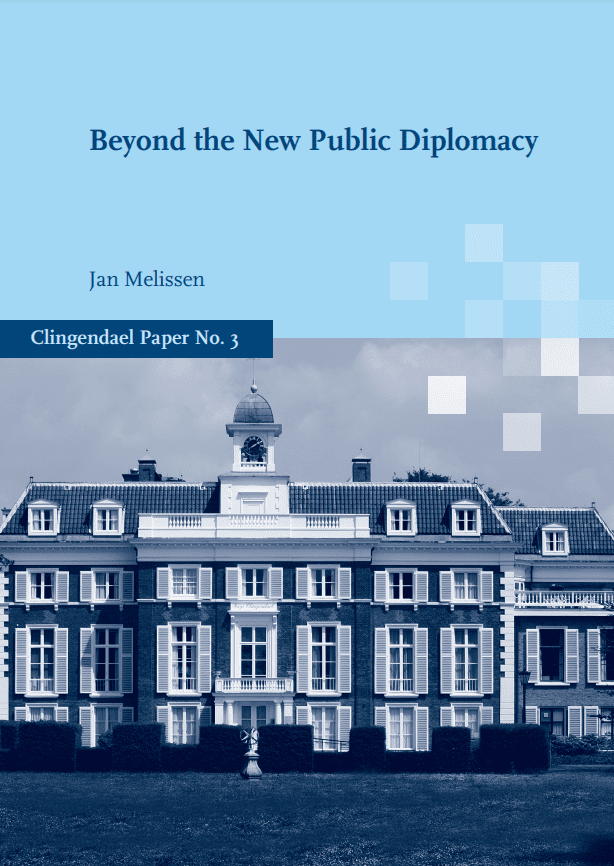
Beyond the new public diplomacy
The text discusses the evolving nature of public diplomacy, emphasizing the importance of adapting to changing communication technologies and embracing a broader, more inclusive approach to interacting with global audiences.

Asymmetry of cultural styles and the unintended consequences of crisis public diplomacy
This essay examines how intercultural communication differences among nations can inadvertently magnify tensions during a crisis when nations rely on their own cultural style of public diplomacy to communicate with foreign publics. Beginning with posing the question of how American efforts to intensify its public diplomacy efforts resulted in declining support, public diplomacy is examined as a communication phenomenon, as opposed to a purely political phenomenon.
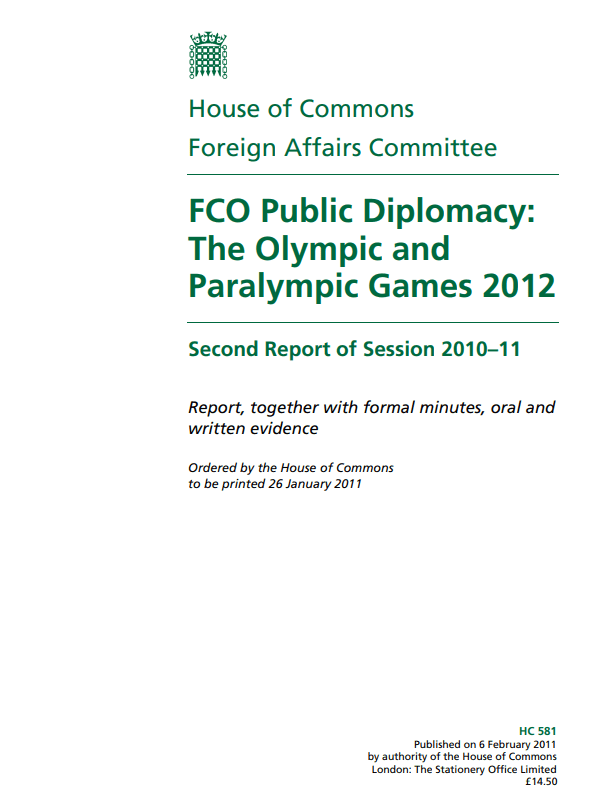
FCO Public Diplomacy: The Olympic and Paralympic Games 2012
The FCO's Public Diplomacy discusses the impact of the 2012 Olympic and Paralympic Games on the UK's international image and relationships. The Games served as a platform for showcasing Britain's creativity and diversity to a global audience. Hosting the Games also presented opportunities for cultural and economic exchanges, contributing to diplomatic efforts and partnerships worldwide.
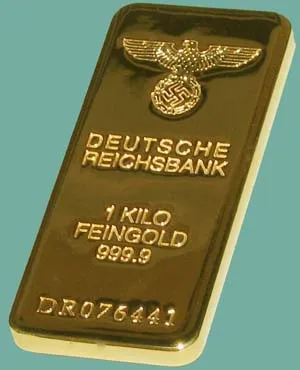
Diplomacy of Image & Memory: Swiss Bankers and Nazi Gold
The text discusses the perception of Swiss bankers in relation to their handling of Nazi gold during World War II.
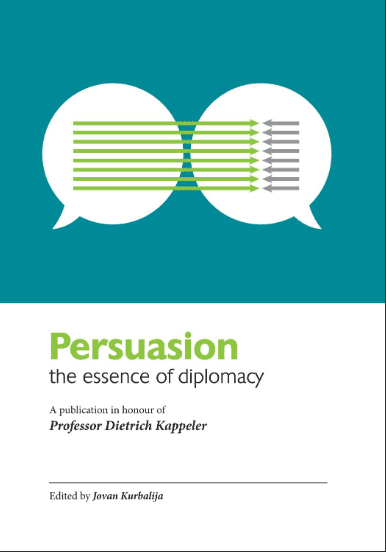
Framing an argument
Dr Biljana Scott’s article on framing an argument introduces the linguistic and rhetoric aspects of persuasion. The way in which we frame an issue largely determines how that issue will be understood and acted upon. By dissecting Obama’s Nobel Prize acceptance speech of December 2010, Dr Scott illustrates the main techniques for framing an argument.

Twiplomacy Study 2015
The Twiplomacy Study 2015 analyzed the Twitter accounts of 669 heads of state and government, revealing that 86 percent have a presence on the platform. With a combined total of over 300 million followers, these leaders use Twitter for diplomatic relations and communication with citizens and other world leaders. Key findings include the most followed leaders, the most interactive accounts, and the most effective tweets. Twitter is considered an essential tool for modern diplomacy, allowing leaders to connect directly with citizens and shape public opinion on a global scale.

Propaganda in International Politics
The text examines the role and impact of propaganda in shaping international politics, exploring its use as a tool for influencing public opinion and advancing political agendas on the global stage.
Public diplomacy: Sunrise of an academic field
The text discusses the emergence and growth of public diplomacy as a field of study within academia.
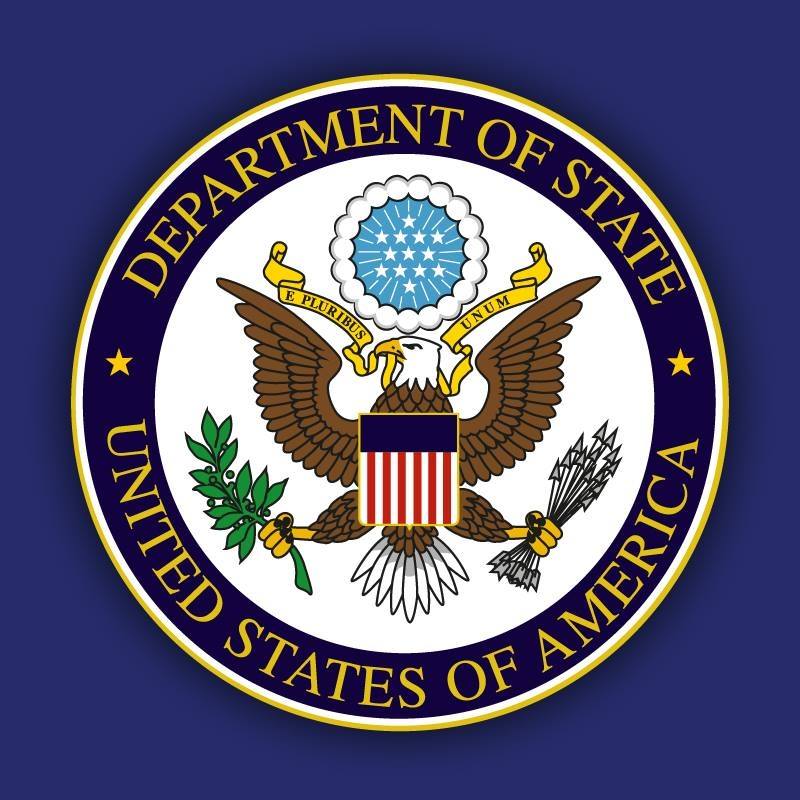
U.S. National Strategy for Public Diplomacy and Strategic Communication
The U.S. National Strategy for Public Diplomacy and Strategic Communication aims to enhance America's image and leadership globally through effective communication strategies and engagement with international audiences. It emphasizes the importance of promoting democratic principles, countering misinformation, and building strong partnerships to advance U.S. interests and values. By leveraging technology, cultural exchanges, and targeted messaging, the strategy seeks to foster mutual understanding and trust with foreign populations while advancing national security goals.
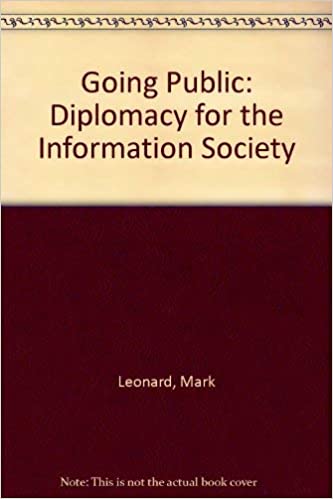
Going Public: Diplomacy for the Information Society
The text is about the importance of public diplomacy in the Information Society.
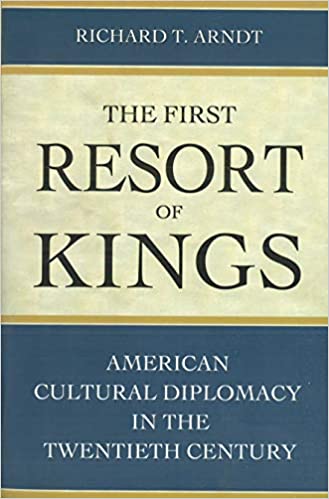
The First Resort of Kings: American cultural diplomacy in the twentieth century
The text discusses the significance of American cultural diplomacy throughout the twentieth century, highlighting its role as an essential tool for promoting American values and influence on a global scale.
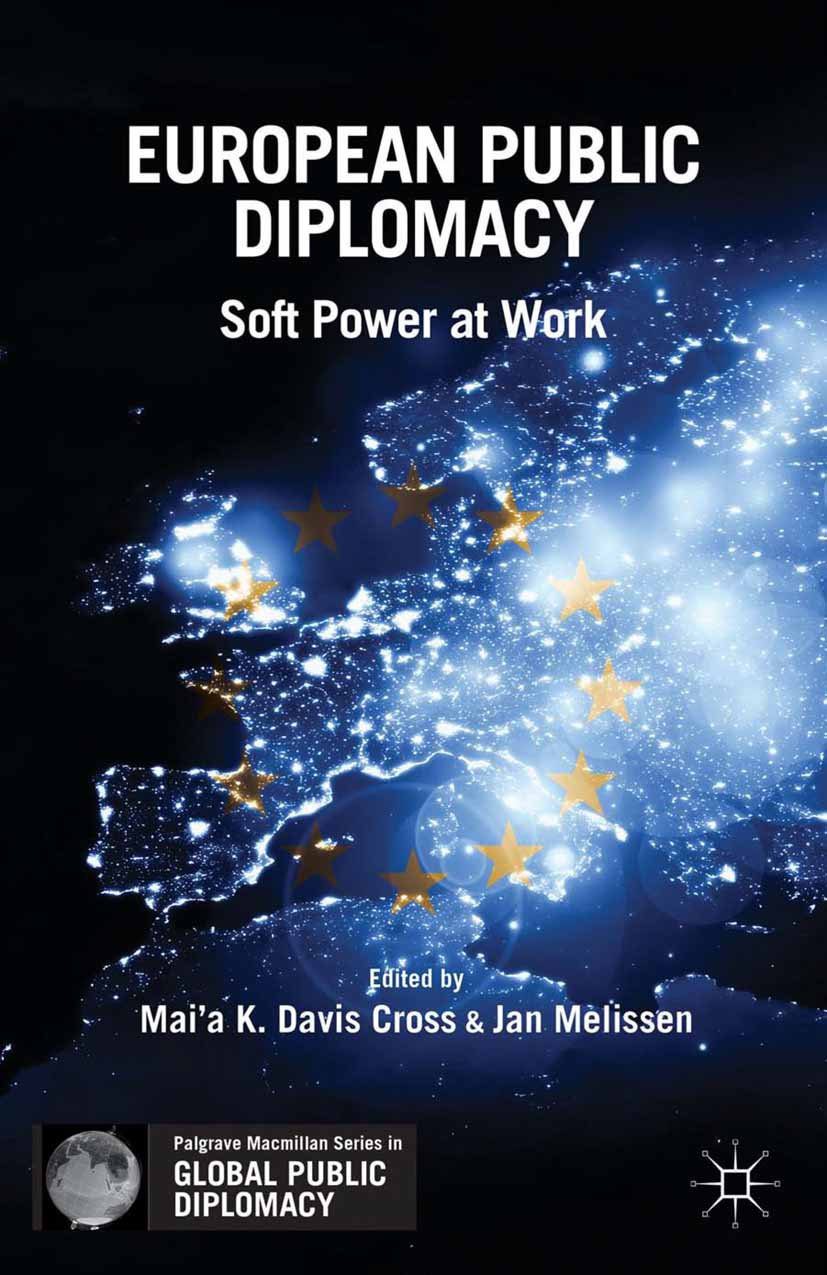
European Public Diplomacy: Soft Power at Work
The text discusses the concept of European public diplomacy and its role in exerting soft power influence globally. It emphasizes the importance of enhancing the EU's image and credibility through strategic communication, cultural diplomacy, and people-to-people exchanges. The text highlights how public diplomacy can help build relationships, foster understanding, and promote the EU's values and interests on the international stage.
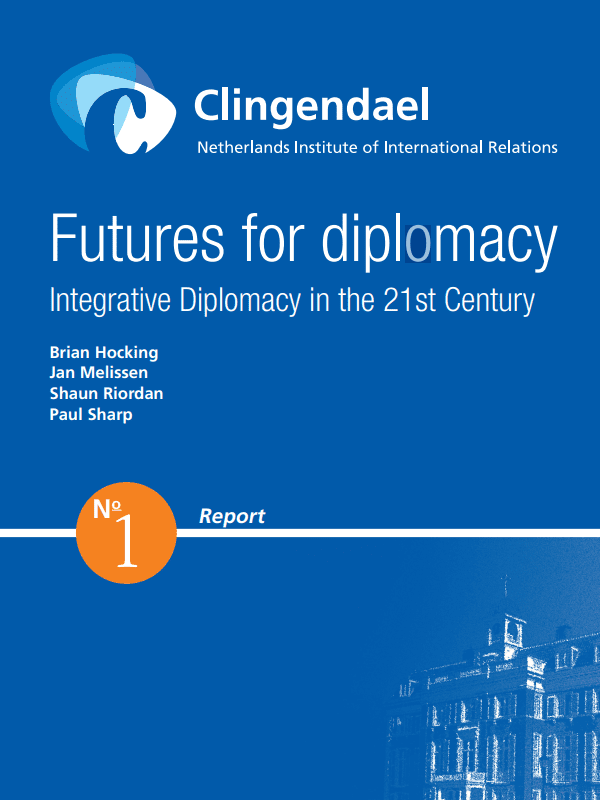
Futures for diplomacy: Integrative Diplomacy in the 21st Century
The text discusses Integrative Diplomacy in the 21st century, emphasizing the importance of adapting traditional diplomacy to current global challenges and opportunities. Diplomacy is viewed as a tool for addressing complex issues through collaboration and integration, fostering mutual understanding and sustainable solutions. The changing dynamics of international relations require a more inclusive and interconnected approach, focusing on partnerships and cooperation in order to navigate the complexities of the contemporary world. Diplomacy is seen as essential in shaping the future of global ...

U.S. Public Diplomacy: State Department Efforts to Engage Muslim Audiences Lack Certain Communication Elements and Face Significant Challenges
The State Department's public diplomacy efforts to engage Muslim audiences lack key communication elements and face substantial challenges.

Marketing a Country: Promotion as a Tool for Marketing a Country
It has been ten years since the first occasional paper by the Foreign Investment Advisory Service, Marketing a Country, was published. In that time Marketing a CountrY has become a standard text on the structure and functions of agzncies that promote foreign direct investment. I have seen copies of the paper in ministries and promotion agencies all over the -world. Usually pages are dog-eared, and the text is heavily underlined, indicating intense study of the contents. Marketing a Country created a languagTe for discussing the investment promotion function, and has provided a rationale fo...

Multiculturalism for the masses: Social advertising and public diplomacy post-9/11
The terrorist attacks of 9/11 have brought an old problem into new focus: how to unite a population potentially divided along racial, ethnic and denominational fault lines. In the light of unprovoked and indiscriminate racist attacks on Muslim-looking minorities, multi-media advertising campaigns were mounted in several countries in order to quell racism and sell multiculturalism. This paper examines the use of advertising campaigns as a medium for public diplomacy, and focuses on the promotion of national unity out of cultural diversity.
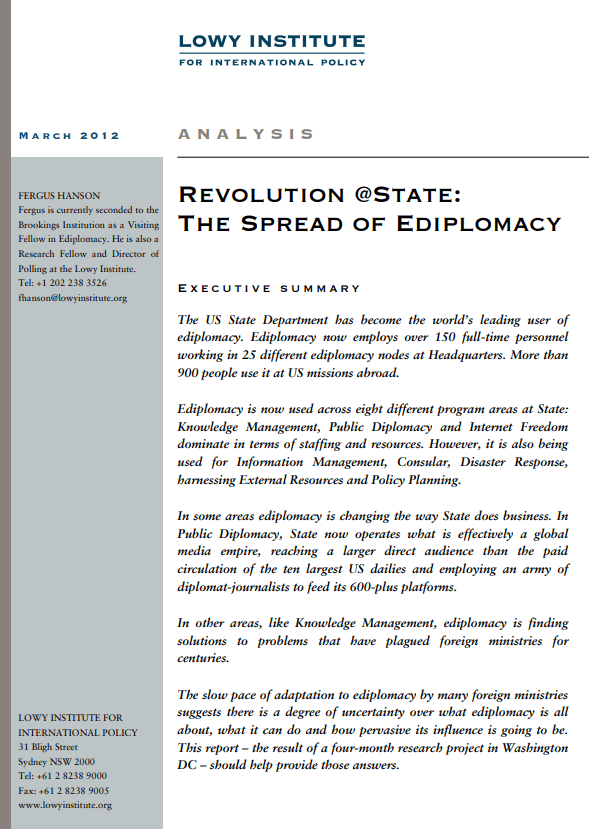
Revolution @State: The Spread of E-diplomacy
The text text explores the phenomenon of e-diplomacy, analysing its impact on modern diplomacy and the ways in which digital technologies are reshaping diplomatic practices and communication strategies at the state level.

Establishment of Public Diplomacy in Slovakia: An Effective New Approach
This paper examines the present Slovak PD with its positive and negative components and outlines the requirements for a modern and effective PD.

The positive branding of Islam
In the text, the positive aspects of Islam are highlighted, emphasizing values such as peace, justice, and compassion present within the religion. The message aims to counter negative stereotypes and promote a better understanding and appreciation of Islam.
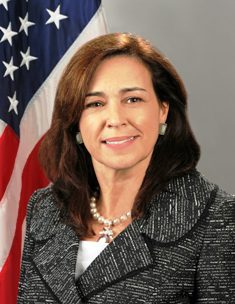
Measuring the Public Diplomacy of the Future
The message explores how changes in technology are impacting public diplomacy efforts and emphasizes the need for innovative strategies to engage with audiences in the future.
The latest from Diplo and GIP
Tailor your subscription to your interests, from updates on the dynamic world of digital diplomacy to the latest trends in AI.
Subscribe to more Diplo and Geneva Internet Platform newsletters!
Diplo: Effective and inclusive diplomacy
Diplo is a non-profit foundation established by the governments of Malta and Switzerland. Diplo works to increase the role of small and developing states, and to improve global governance and international policy development.


